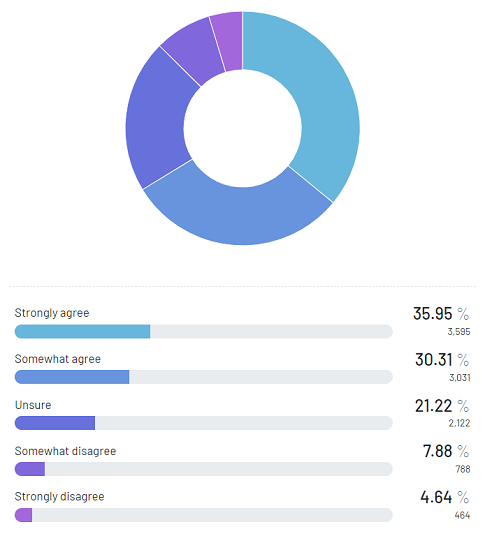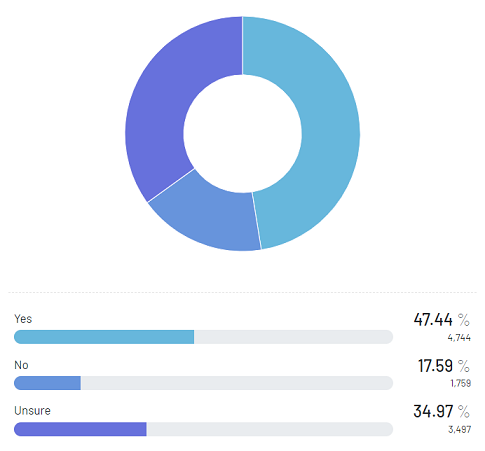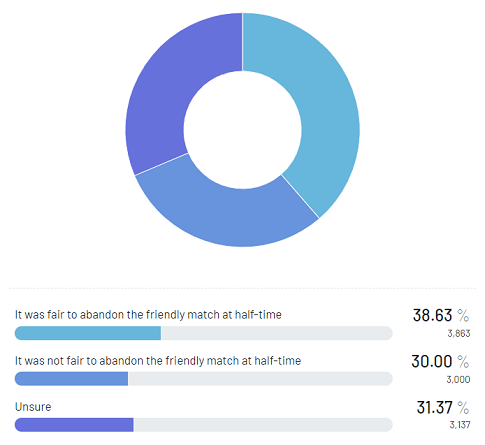 A Significant 75.58% Supported the New Zealand Team’s Decision to Abandon the Game
A Significant 75.58% Supported the New Zealand Team’s Decision to Abandon the GameThe New Zealand national men’s football team made the unprecedented decision to abandon their friendly match against Qatar at half-time due to allegations of racial abuse and inaction by officials. New Zealand Football released a statement confirming that player Michael Boxall was racially abused by a Qatari player during the first half, but the officials took no action.
As a result, the New Zealand football team abandoned the friendly match with Qatar and did not return for the second half. The incident mirrored another similar occurrence, where the Republic of Ireland Under-21s’ friendly against Kuwait Under-22s was also abandoned due to alleged racist abuse towards an Ireland substitute.
Both incidents have sparked widespread condemnation, with football authorities and players expressing support for the actions taken by the teams. The New Zealand Professional Footballers’ Association and the Football Association of Ireland have both pledged to report the incidents to FIFA and UEFA, highlighting their commitment to combating racism in the sport.
Real Research, an online survey app, launched a survey on New Zealand abandoning the Qatar game at half-time over alleged racial abuse to assess racial abuse during the New Zealand-Qatar match.
Highlights:
- 34.18% were unaware of the New Zealand-Qatar match racial abuse.
- 34.28 were familiar that the New Zealand team abandoned the game due to the racial abuse during the New Zealand-Qatar match and inaction of officials
- 40.43% somewhat agreed with the New Zealand team’s choice to end the game.
The decision of the New Zealand football team (NZF) to abandon their friendly match against Qatar at half-time due to alleged racial abuse during the New Zealand-Qatar match sparked a significant amount of awareness and opinions among people.
According to our survey on racial abuse during the New Zealand-Qatar match, 32.51% of respondents were well aware of the incident, while 33.31% were vaguely aware, and 34.18% were unaware of the situation.
The NZF’s decision to abandon the game was primarily attributed to the inaction of the officials. The survey results indicate that 35.15% of respondents strongly agreed and 40.43% somewhat agreed with the NZF’s decision, suggesting a general sentiment of support for their actions.
On the other hand, 3.15% somewhat disagreed and 1.22% strongly disagreed. However, the majority of respondents supported the NZF’s stance, highlighting the belief among a significant portion of the public that taking a stand against racial abuse is important, even if it means disrupting a sporting event.
Regarding the officials’ inaction, the survey results show that 35.95% strongly agreed and 30.31% somewhat agreed with the officials’ response. In contrast, 7.88% somewhat disagreed and 4.64% strongly disagreed, indicating some disagreement with the officials’ handling of the situation.

These results suggest that there is a significant proportion of people who believe that officials should have taken the allegations more seriously and responded promptly to address the issue.
Read Also: 64% Of Respondents Favor the Decision to Permanently Ban the Fans That Racially Abused Vinicius
Denial of Racism Claims in Friendly Matches: Qatar and Kuwait Football Associations Respond to Allegations
Both the Qatar and Kuwait football associations have denied claims of racism during their friendly matches against New Zealand and Ireland, respectively. In response to the incident, the Qatar Football Association (QFA) pledged full support for the accused player, Yousuf Abdurisag.
The survey poll asked the respondents about their opinion on QFA’s decision. 31.5% of respondents strongly agreed and 33.29% somewhat agreed with the QFA’s decision to support Abdurisag. In contrast, 2.92% strongly disagreed and 6.16% somewhat disagreed.
Regarding the punishment imposed on Qatar for the racial abuse incident during their friendly match against New Zealand, which includes a 20,000 euro fine and playing the next qualifying match behind closed doors, the survey results highlight a divided opinion among respondents.
Among the respondents, 47.44% agreed with the imposed punishment. However, a minority portion of respondents, 17.59%, disagreed with the punishment, suggesting their reservations about the severity or effectiveness of the imposed measures.

Meanwhile, a notable proportion of respondents, 34.97%, remained unsure about their stance on the punishment. This uncertainty reflects the complexity and varying perspectives surrounding the appropriate measures to be implemented in response to incidents of racial abuse during the New Zealand-Qatar match.
Furthermore, when asked about the fairness for the fans worldwide of the NZF’s decision to abandon the match, 38.63% of respondents said it was fair, 31.37% were unsure, and 30% said it was unfair. These results reflect the ongoing debate surrounding the balance between addressing racial abuse and the impact on fans and the integrity of the sport.

Conclusion
The incident involving the New Zealand and Qatar teams and subsequent reactions and opinions highlight the prevalence of racial abuse in football and the challenges faced in addressing such incidents effectively.
Methodology | |
| Survey Title | Survey on New Zealand Abandoning Qatar Game At Half-Time Over Alleged Racial Abuse |
| Duration | July 2, 2023 – July 9, 2023 |
| Number of Participants | 10,000 |
| Demographics | Males and females, aged 21 to 99 |
| Participating Countries | Afghanistan, Algeria, Angola, Argentina, Armenia, Australia, Azerbaijan, Bahrain, Bangladesh, Belarus, Benin, Bolivia,… Brazil, Brunei, Bulgaria, Burkina Faso, Cambodia, Cameroon, Canada, Chile, China, China (Hong Kong) China (Macao), China (Taiwan), Colombia, Costa Rica, Croatia, Czech Republic, Ecuador, Egypt, El Salvador, Ethiopia, Finland, France, Gambia, Georgia, Germany, Ghana, Greece, Greanada, Guatemala, Honduras, Hungary, India, Indonesia, Iraq, Ireland, Israel, Italy, Ivory Coast, Japan, Jordan, Kenya, Kuwait, Kyrgyzstan, Latvia, Lebanon, Libya, Lithuania, Malaysia, Maldives, Maluritania, Mexico, Moldova, Mongolia, Morocco, Mozambique, Myanmar [Burma], Namibia, Nepal, Nicaragua, Nigeria, Oman, Pakistan, Palestine, Panama, Peru, Philippines, Poland, Portugal, Qatar, Romania, Russia, Saudi Arabia, Serbia, Sierra Leone, Singapore, Slovakia, South Africa, South Korea, Spain, Sri Lanka, Tanzania, Thailand, Togo, Tunisia, Turkey, Turkmenistan, Uganda, Ukraine, United Arab Emirates, United Kingdom, United States, Uruguay, Uzbekistan, Venezuela, Vietnam, Yemen, Zimbabwe. |
RR Author
Real Research News is the media platform that presents insights and studies of wide-range of topics. It focuses on insights gathered from its survey app.







